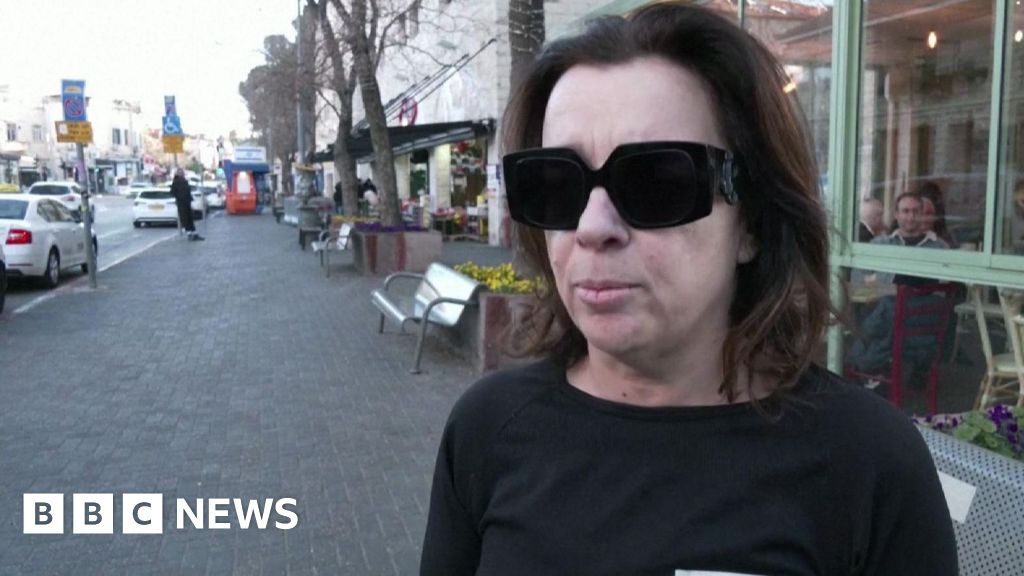ARTICLE AD BOX
By Anna Holligan
BBC News, Amsterdam
Image source, Anna Holligan/BBC
Image caption,Museums and orchestras became hair and nail salons as part of the protest
Under the gaze of Van Gogh, Robyn is buffing her client's nails. Laden with primers and polishes, a long table beneath the Dutch master's self portraits has transformed the Van Gogh Museum in Amsterdam into a nail salon.
The museum's director Emilie Gordenker hopes this protest, along with others across the Netherlands, will highlight what she believes is an inconsistency in government policy.
Under Dutch rules, museums, theatres, bars and cafes aren't allowed to open, but hairdressers, beauticians and gyms can. That's why beauticians were offering cherry-blossom and starry-night nail art inspired by the master.
"A museum visit is a safe visit, and equally important as going to a nail salon, perhaps more so. We just ask them to be consistent... make the rules in a way everyone understands them. At this point that seems to be lacking," Ms Gordenker said.
The Van Gogh Museum was one of many institutions taking part:
- Amsterdam's De Balie debate centre circumvented the rules by opening as a religious institution called the Philosophical Society, the Community of Reason
- The Mauritshuis, home to Vermeer's Girl with the Pearl Earring, organised a boot camp for workouts, on parliament's doorstep in The Hague
Image source, Museum Panorama Mesdag
Image caption,People were invited for a "mental booster", to view the largest painting in the Netherlands, the Panorama of Scheveningen
- The Panorama Mesdag museum, also in The Hague, offered a "boost your mind" afternoon
- It was one of around 70 members of the Dutch Museum Association offering so-called museum gym classes like this
- The Limburgs Museum in the south-east was among those turning into a gym for the day. "Because that wasn't allowed, our colleagues left their workplaces for an active Zumba session," it tweeted.
Ms Gordenker stressed that Wednesday's action differed to that of anti-lockdown, anti-vaccine protesters who regularly express their discontent on the public square outside the Van Gogh Museum, insofar as the institutions are sticking to the rules.
Anyone attending the performative treatments had to show a QR code, keep a physical distance and wear a mask.
Image source, Anna Holligan/BBC
Image caption,This man was getting his hair cut at the Van Gogh Museum
Many sectors of society share the view that the government's strategy is illogical and contradictory.
"It's crooked, I can do my job and the people from the museum cannot," said Mischa, a barber, who carted his traditional barber's chair, mirror and trimmers into the entrance of the Van Gogh Museum.
"Look around you. There's so much space, and people can be in a supermarket with 300 people, it's crazy."
But didn't he feel anxious, working so close to Van Gogh's masterpieces? "Only anxious I will cut someone's ear off, like Vincent did," he quipped.
Image source, Milagro Elstak/Concertgebouw
Image caption,Haircuts were carried out in the Concertgebouw as the orchestra played under conductor Susanna Mälkki
On the other side of Amsterdam's museum square, the Concertgebouw treated 50 people to an orchestral rehearsal accompanied by a hairdresser's scissors, snipping on stage. Dutch orchestras are currently allowed to rehearse but not admit audiences.
The orchestra said it was designed "to enrich their lives with the power of symphonic music at a time when everyone needs inspiration".
Across the Netherlands, staff were aware they could be interrupted mid-lunge.
Local council enforcers threatened to drop by without an appointment and Amsterdam Mayor Femke Halsema was one of several city leaders warning that the cultural protests wouldn't be tolerated, no matter how stylish they might be.
Latest figures show that last week one in every 72 people in the Netherlands tested positive for coronavirus. Despite the high infection rate hospital admissions have continued to decline.
"In a way it makes you alive," said Marianna, who was getting her nails filed in the shadow of Van Gogh. Her hope was that the government would see the protest and understand that reopening cultural institutions mattered to people's mental health.
"Everyone is in a dark mood; my 11-year-old daughter looks depressed. If you take away cultural expression, gathering, then what are we here for, what's left?"
You might also be interested in:
BBC Reality Check answers your vaccine concerns

 3 years ago
27
3 years ago
27








 English (US) ·
English (US) ·